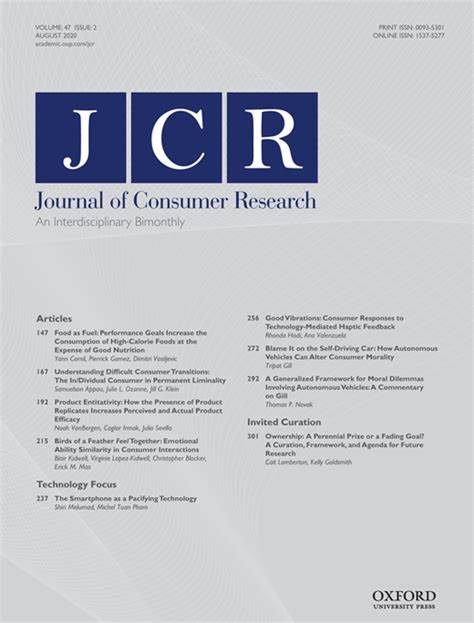When Fields Are Destabilized: Mobilizing Gendered Capital to Resolve Hysteresis
IF 6.4
1区 管理学
Q1 BUSINESS
引用次数: 1
Abstract
In the fight for legitimacy, understanding the rules of status games is critical. This idea holds true in the wedding marketplace. However, when legalization of marriage for same-sex couples disrupted the binary wedding script, the rules of the game became less clear to consumers. Couples sometimes found their gendered bodies, roles, and expressions were out of sync with the evolving script of a destabilized wedding field, thus raising legitimacy questions. This situation is defined as hysteresis—meaning delays in the realignment between habitus and the field. Hysteresis results in consumers’ disorientation about what forms of capital are valued as well as perceived absences of materials or recognition from the market. This study investigates consumers’ attempts to mobilize gendered capital to resolve hysteresis through realignment of habitus and the script. Grounded in a Bourdieuian field-level analysis of depth interviews with 30 same-sex couples and ethnographic observation in the wedding field, four consumption alignment strategies are identified that consumers leverage to address hysteresis: confronting, masking, collaborating, and experimenting. Consumers’ variations in gendered capital explain which consumption alignment strategies they use, with different possibilities for updating habitus and expanding the script. Throughout this process, consumers’ moral judgments hinder this pursuit.当领域不稳定:动员分类资本解决滞后
在争取合法性的斗争中,理解地位游戏的规则至关重要。这个想法在婚礼市场上是正确的。然而,当同性婚姻合法化打破了二元婚姻的剧本时,游戏规则对消费者来说变得不那么清晰了。夫妇们有时会发现他们的性别身体、角色和表情与一个不稳定的婚礼领域不断发展的剧本不同步,从而引发合法性问题。这种情况被定义为迟滞-意思是习惯和场之间重新排列的延迟。滞后性导致消费者对什么形式的资本是有价值的迷失方向,以及感知到缺乏材料或市场的认可。本研究探讨消费者试图调动性别资本,透过调整习惯与剧本来解决迟滞。基于对30对同性伴侣的深度访谈和婚礼领域的人种学观察的布迪埃场域分析,我们确定了消费者用来解决滞后的四种消费结盟策略:面对、掩盖、合作和实验。消费者性别资本的差异解释了他们使用的消费对齐策略,具有更新习惯和扩展脚本的不同可能性。在整个过程中,消费者的道德判断阻碍了这种追求。
本文章由计算机程序翻译,如有差异,请以英文原文为准。
求助全文
约1分钟内获得全文
求助全文
来源期刊

Journal of Consumer Research
BUSINESS-
CiteScore
12.00
自引率
9.70%
发文量
53
期刊介绍:
Journal of Consumer Research, established in 1974, is a reputable journal that publishes high-quality empirical, theoretical, and methodological papers on a wide range of consumer research topics. The primary objective of JCR is to contribute to the advancement of understanding consumer behavior and the practice of consumer research.
To be considered for publication in JCR, a paper must make a significant contribution to the existing body of knowledge in consumer research. It should aim to build upon, deepen, or challenge previous studies in the field of consumption, while providing both conceptual and empirical evidence to support its findings.
JCR prioritizes multidisciplinary perspectives, encouraging contributions from various disciplines, methodological approaches, theoretical frameworks, and substantive problem areas. The journal aims to cater to a diverse readership base by welcoming articles derived from different orientations and paradigms.
Overall, JCR is a valuable platform for scholars and researchers to share their work and contribute to the advancement of consumer research.
 求助内容:
求助内容: 应助结果提醒方式:
应助结果提醒方式:


